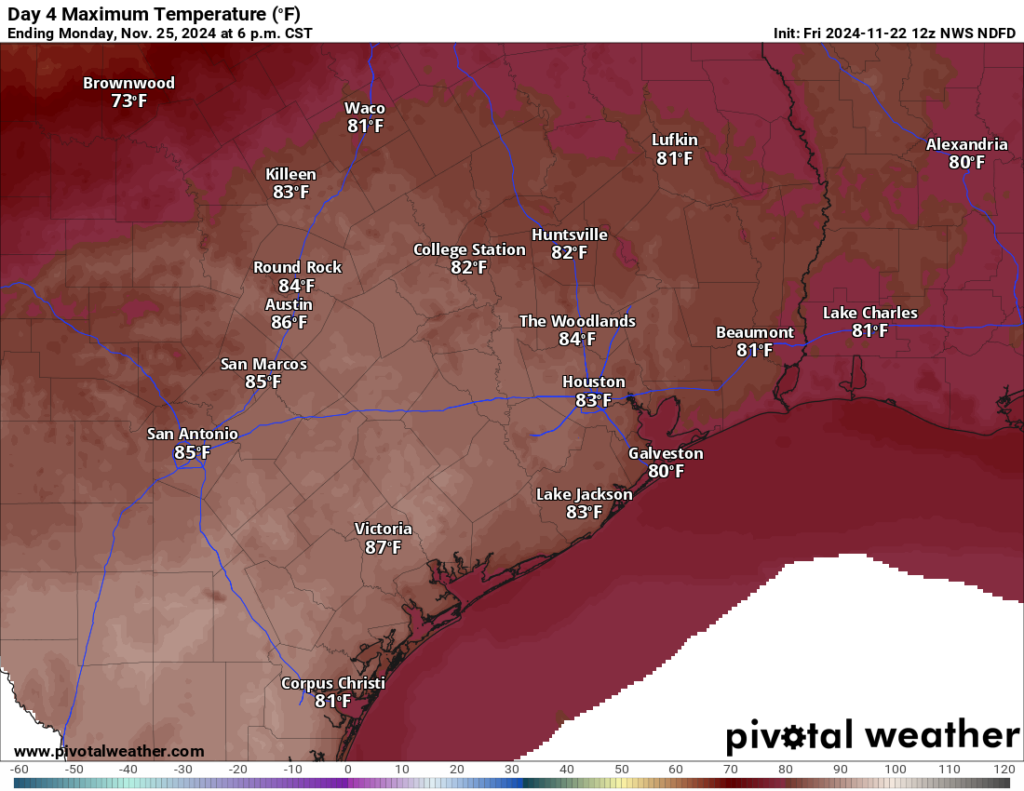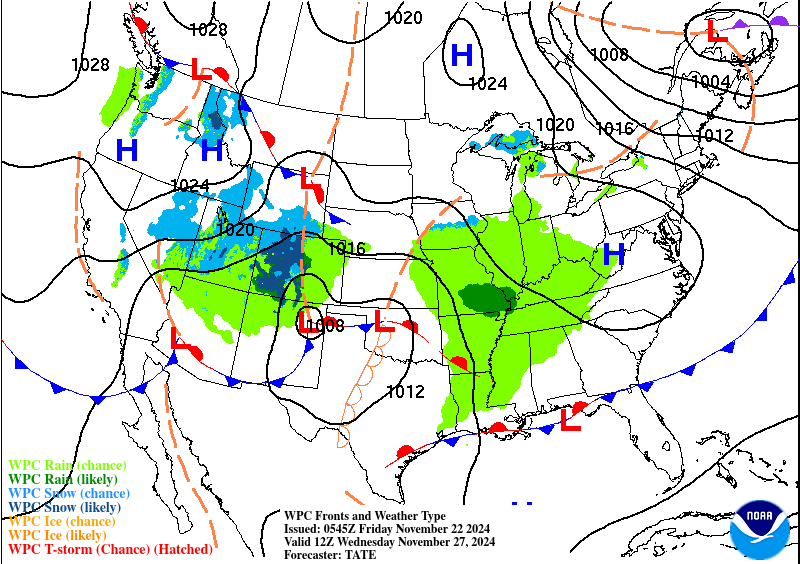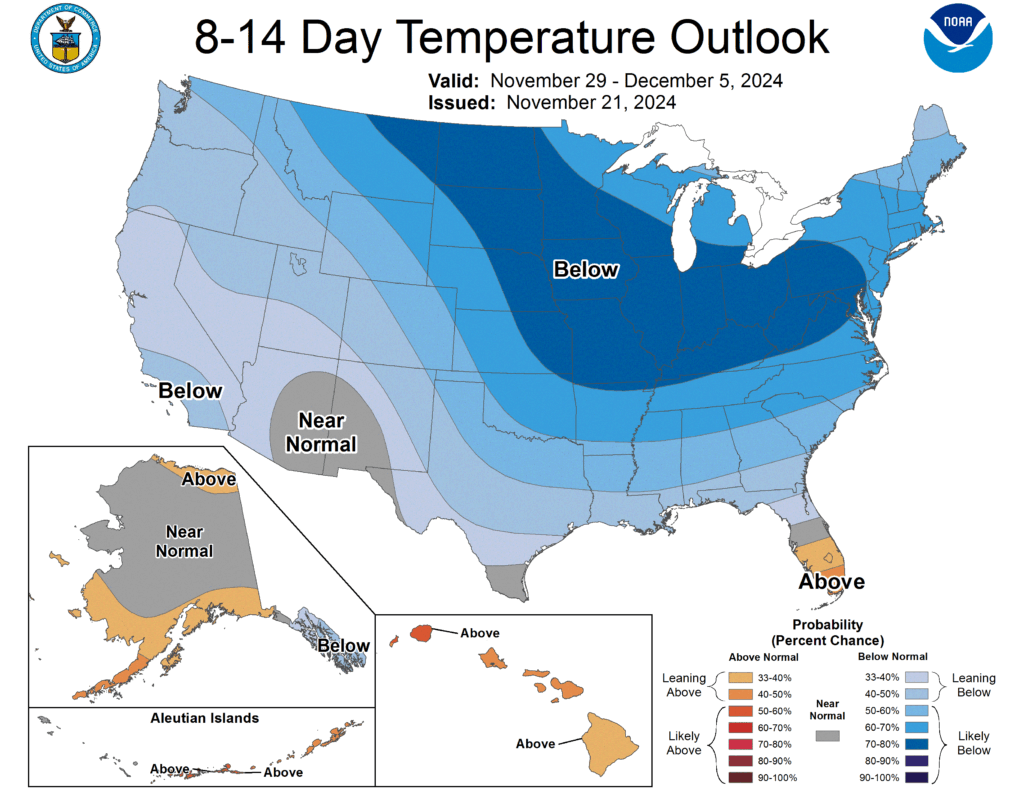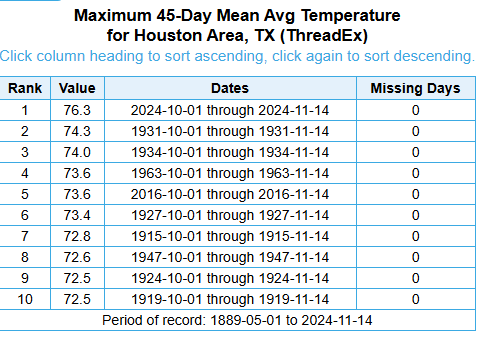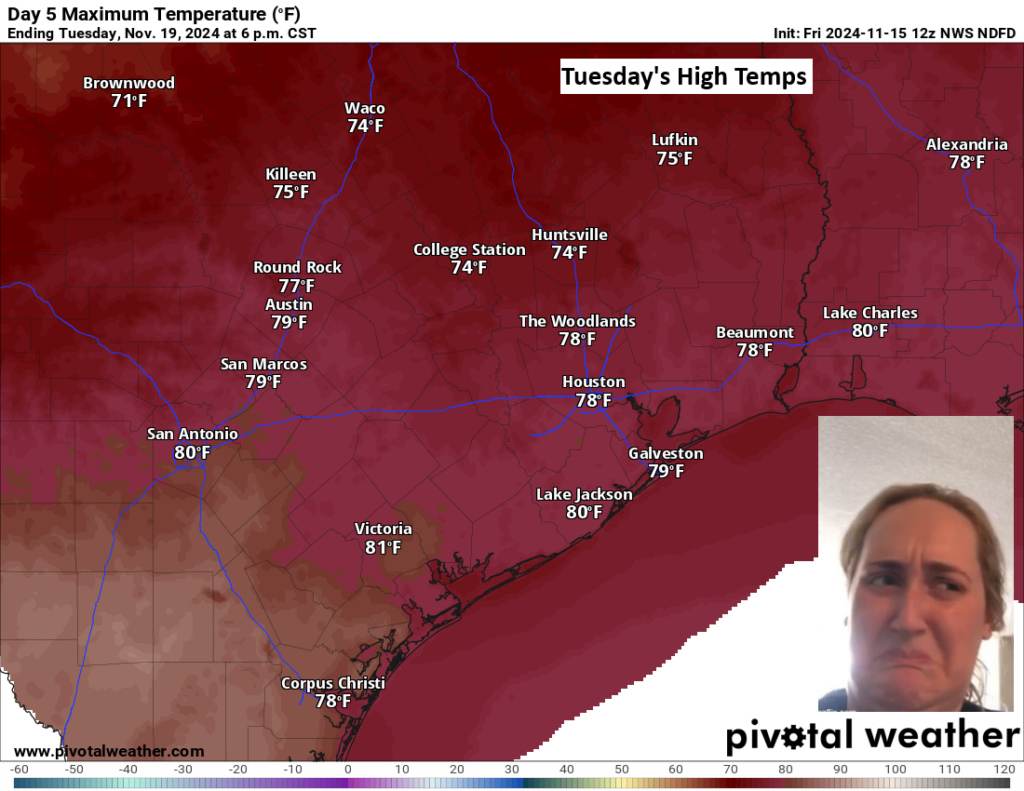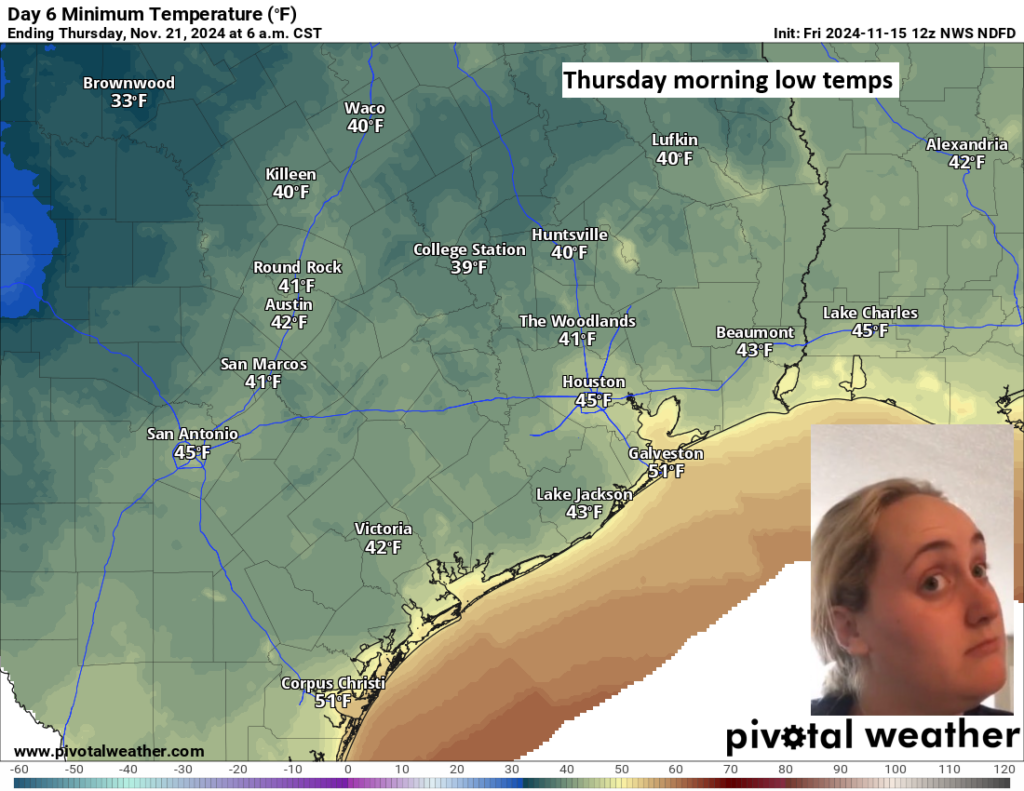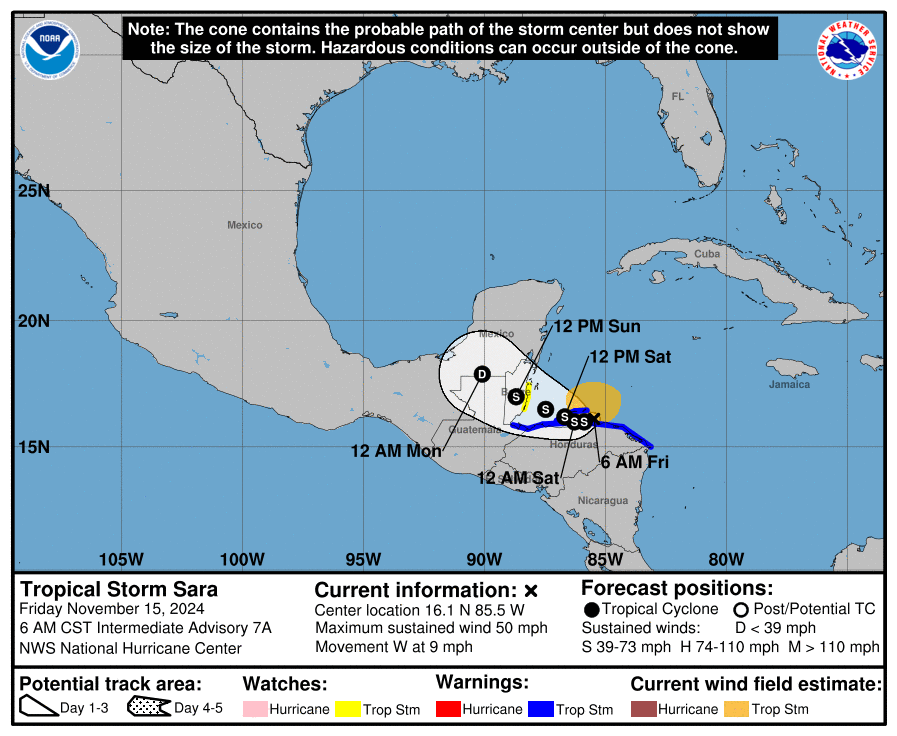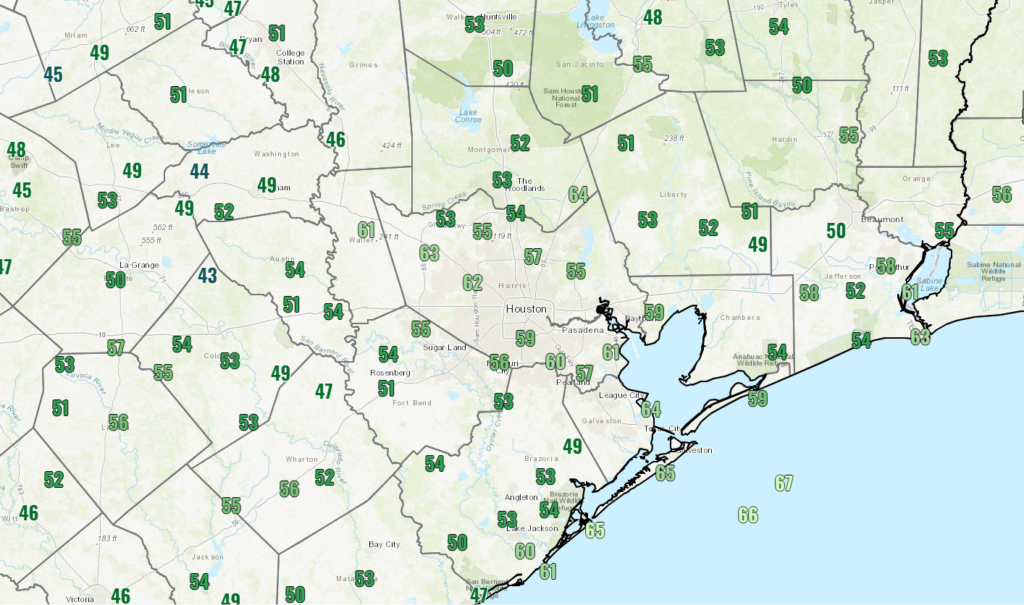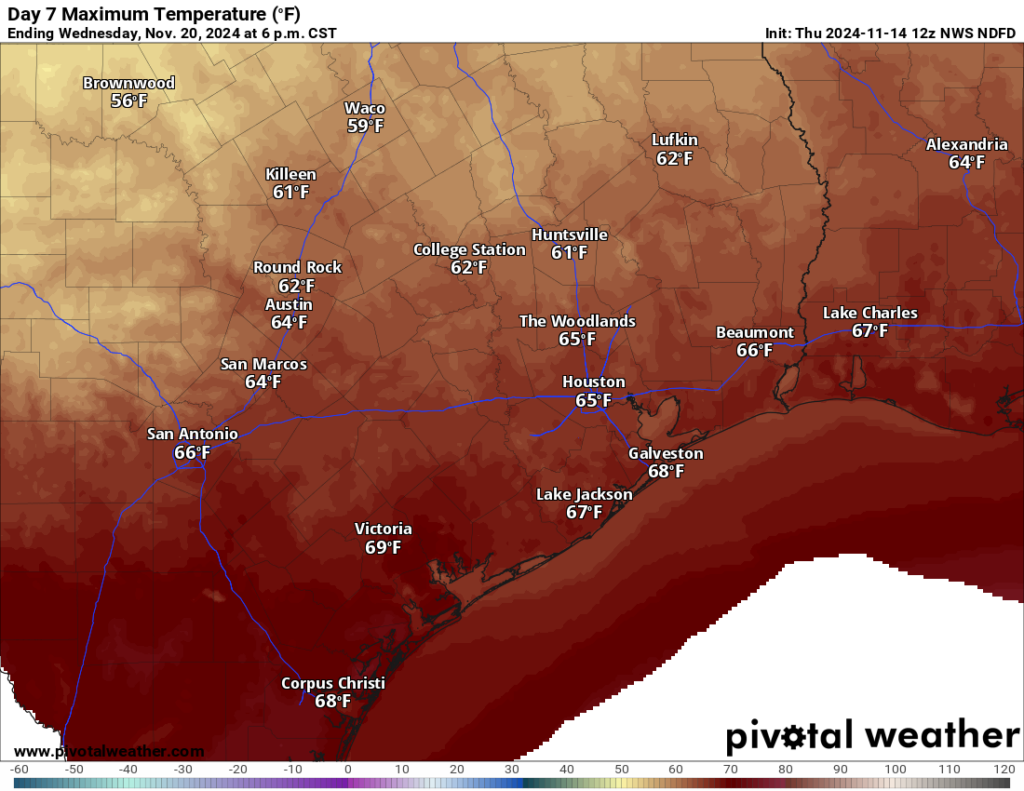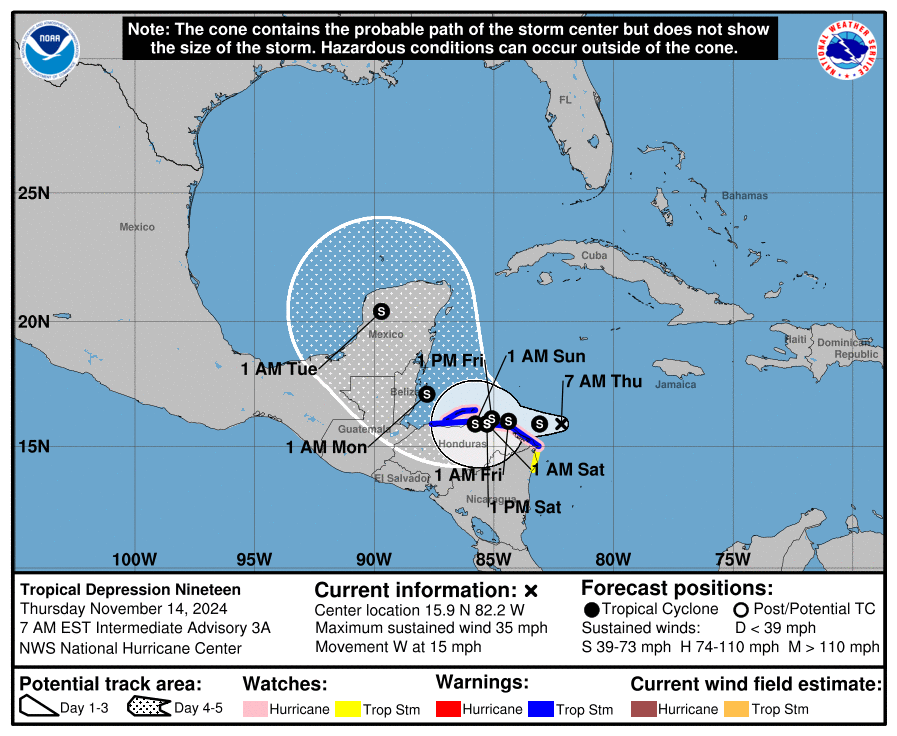In brief: Periods of sun and clouds will be with us in Houston through Monday. Temperatures look cool and very autumn or early winter-like with generally 60s for highs and 40s for lows. A temporary warming trend and rain chances return next week.
Fundraiser final days!
We are in the final days of our site’s annual fundraiser! This is the only chance each year we currently offer Space City Weather merch and a chance to support our work. It’s truly what keeps us going and allows for us to do more fun things (like maintain and upgrade our app!) for you. We are appreciative of your support. Please check out the info and instructions to donate if you don’t want merchandise here or head direct to the merch page here. Thank you again!
Today through Monday
Most of the next few days will be quiet, with only some subtle changes ongoing in the background. For one, today is much sunnier than most of yesterday was, except near the coast and south of Houston, where clouds are still a bit stubborn. But overall, expect more sunshine today. Saturday should see increasing cloud cover, while Sunday may be a lot like today with clouds clinging to southern areas and even perhaps a passing shower down there. Monday looks partly to mostly sunny.
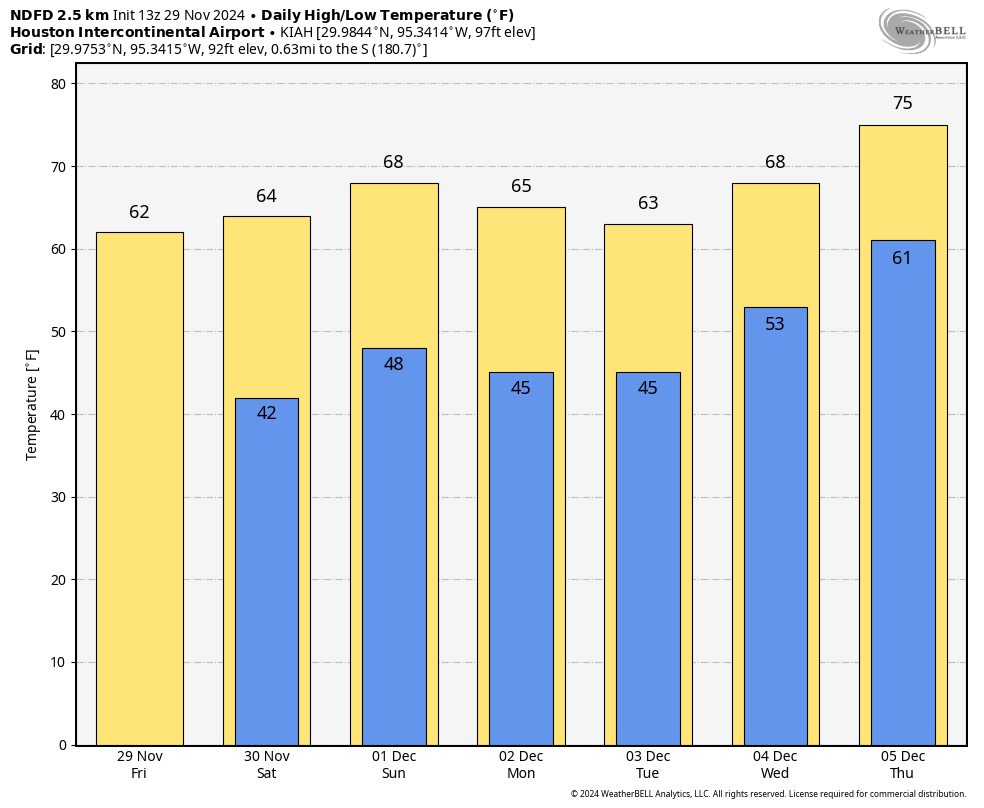
High temperatures will generally be in the 60s on average. A couple days may struggle to get out of the 50s north of Houston and up toward the Piney Woods. Likewise, lows will be in the 40s in Houston and the metro area most nights, with some 30s north of Houston and perhaps 50s south and near the coast. All in all, it will be a fine few days to check out Galaxy Lights, Radiant Nature, Zoo Lights, or any of the other outdoor displays around the region!
Tuesday, Wednesday, and beyond
The weather pattern changes somewhat considerably late Monday and Tuesday as warmer air begins to rush back in off the Gulf. First, we’ll see some cloud cover. But by Tuesday afternoon, we should see scattered to numerous showers and/or thunderstorms in the area. That will continue into Wednesday, along with a pretty healthy warm up. Expect highs back up into the 70s by Wednesday or Thursday.

It does appear another cold front is going to end this warming trend around Friday next week. More on that after the weekend.

